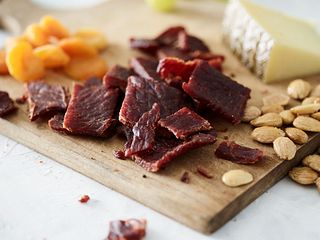Mission Statement
The Iowa Beef Industry Council is dedicated to expanding consumer demand for beef, strengthening beef’s position in the global marketplace and improving producer profitability.
Approved July 8, 2021
About the Iowa Beef Industry Council
The Iowa Beef Industry Council (IBIC) is an organization working for the beef producers of Iowa in areas of education, promotion and research. The Beef Checkoff Program in Iowa is funded by the $1.00 per head national and $0.50 per head Iowa State Beef Checkoff Programs.
The National Beef Checkoff Program is funded by $1.00 per head collected on all Iowa cattle when they are sold. Congress established the National Beef Checkoff Program with the passage of the 1985 Farm Bill and producers approved making the Beef Checkoff Program mandatory in 1988. The Beef Checkoff Program is overseen by the Cattlemen’s Beef Promotion and Research Board (Cattlemen’s Beef Board) and United States Department of Agriculture (USDA).
Fifty cents of each national checkoff dollar is sent directly to the Cattlemen’s Beef Board; the remaining money is allocated for state and national beef promotion efforts by the IBIC Board of Directors. IBIC is a Qualified State Beef Council and a member of the Federation of State Beef Councils.
The Iowa Beef Industry Council administers the $0.50 per head Iowa State Beef Checkoff Program that began on March 1, 2017, in addition to the national program. The Iowa State Beef Checkoff is collected on all cattle sold in Iowa and all "state of origin" Iowa cattle sold. Iowa law Chapter 181 established the Iowa State Beef Checkoff Program.
The Iowa Beef Industry Council office is located in Ames, Iowa.
The State Checkoff Board of the Iowa Beef Industry Council consists of:
- Five cattle producers
who are elected at the annual meeting of the Iowa Beef Industry Council (may
serve two 3-year terms)
- Five statutory members
representing
- Iowa Secretary of Agriculture
- Iowa State University Dean of the College of Agriculture
- Iowa Livestock Auction Markets
- Two appointed from the Iowa Cattlemen's Association
The National Beef Checkoff Board of the Iowa Beef Industry Council consists of:
- Five cattle producers
who are elected at the annual meeting of the Iowa Beef Industry Council (may
serve two 3-year terms)
- Five statutory members
representing
- Iowa Secretary of Agriculture
- Iowa State University Dean of the College of Agriculture
- Iowa Livestock Auction Markets
- Two appointed from the Iowa Cattlemen's Association
- Seven producers
appointed by the Nominating Committee for one-year terms
- Up to five additional
seats for producers who represent Iowa on the Federation of State Beef
Councils. These seats are ex-officio, with voting privileges.
Beef promotion efforts include the "Beef. It’s What’s for Dinner." advertising campaign. The checkoff can work in areas of beef promotion, research, consumer information, industry information, international marketing and producer communication.
What can't the checkoff do?
By law, our checkoff funds cannot be used to influence government policy or action, including lobbying.
Annual Report
Your checkoff dollars work hard for you. Iowa Beef’s Annual Report shows exactly how producer investments are driving demand, strengthening trust, and supporting the long-term success of Iowa’s beef community.
